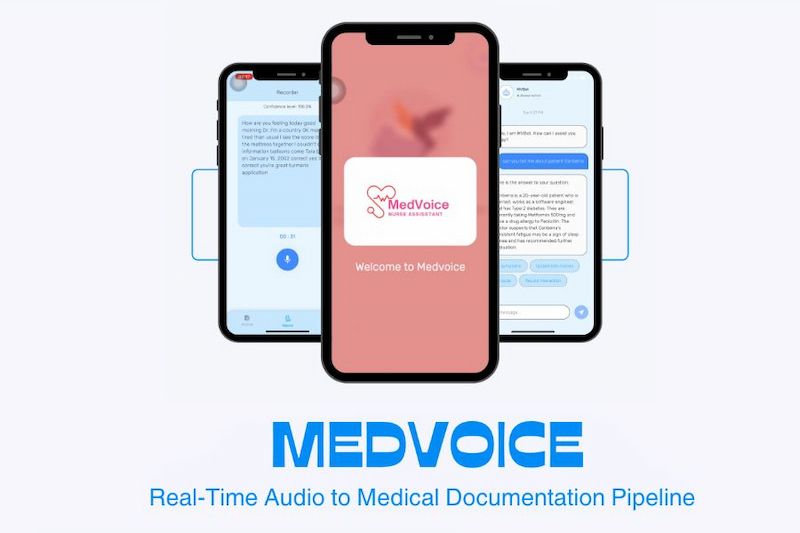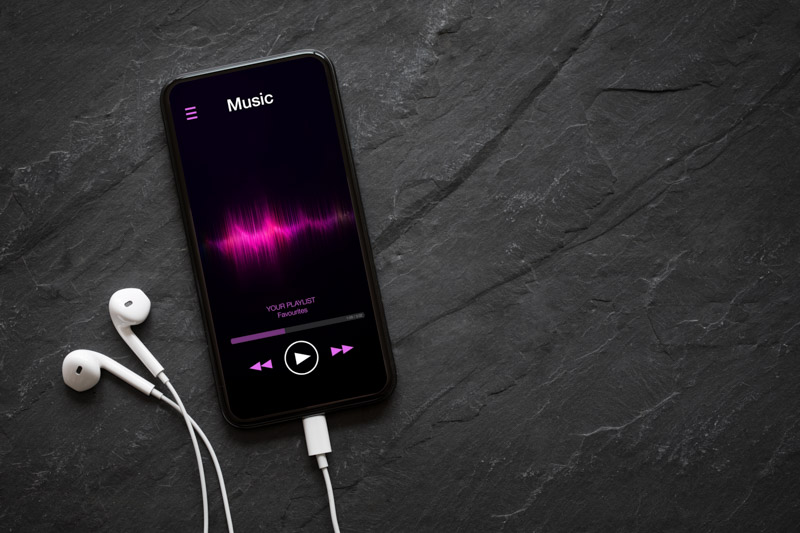“I was a headache sort of student for my teachers back then which I had never realised why until later on,” Vinh recalled.
“It was not because of my teachers’ skills, nor my ability to study. I just didn’t know how to communicate my needs to my teachers.”
The desire of becoming an educator who can bring as many benefits as possible to his students grew stronger while Vinh studied Bachelor of Communication (Professional Communication) at RMIT Vietnam.
“The degree taught me to make myself clearly heard and to build a bridge where students and teachers could seek mutual understanding,” he said.
Vinh shared his experience in how allowing mutual understanding could give rise to profound changes.
“With regard to the concern of one of my lecturers – Dr Nguyen Hong Hai Dang – about her lack of prior knowledge in supporting a student with visual impairment, I negotiated a fully accessible individual assessment plan with a research podcast as opposed to the alternative visually dominated course,” Vinh said.
An RMIT alumni and Chevening Scholar herself, Dr Dang was also a great inspiration who gave Vinh the nudge to pursue his aspiration.
Vinh went the extra mile to enhance the understanding and leverage extensive changes through various activities, including speaking at RMIT TEDx, speaking at PricewaterhouseCoopers, and participating in a talk-show on Vietnam's National TV Network with the focus on special people, diversity, and inclusion.
His deep understanding in assistive technology played a key role in the improved accessibility of RMIT’s interactive learning module for screen reader users. As part of his consultancy, Vinh helped present RMIT Access, Informing Science and IT Education Multi-Conference, and hosted a two-day Accessibility and Inclusion Practices in Higher Education Conference in 2020.
Take the lead
After graduation, Vinh decided to work his way to a master’s degree in special needs education. The decision was not easy for anyone, not to mention a visually impaired person, especially during COVID-19 lockdowns.
The global pandemic put Vinh in a tough situation with his savings almost drying up as he was unable to run his own language classes for six months straight.
“I knew that I had to learn to brace myself against challenges,” Vinh shared.
“I was concerned I would first bend and soon break under the weight of my two-year plan that has half gone without much accomplishment.
“However, I straightened my back, raised my chin to transfer my classes online, and faced the challenges of online connection and engagement with my students.”
Vinh didn’t only enhance his online teaching skills through watching YouTube videos, attending similar classes, reading extensively about hosting online classes, learning tips and tricks particularly useful for the visually impaired students, but successfully ran all his classes virtually with confidence while the Delta variant was taking its harsh toll, particularly on persons with disabilities (PWDs).
The determined young man even initiated and established the ScriVi [a blend of ‘scrivener’ and ‘vision’/’Vietnam’] to train visually impaired members with professional transcription skills to provide such service to researchers, journalists, and other customers.
“April 2021 marked ScriVi's new milestone with a major contract with the Oxford University Clinical Research Unit that I secured,” Vinh proudly shared.
Now that he has started his journey at the University of Exeter, Vinh is excited about what the degree can bring to him.
The ambitious young man aims to improve accessibility and inclusion for PWDs through both personal and non-personal approaches.
“As one of only a few people with a visual impairment who has succeeded in the white-collar world in Vietnam, I learnt that besides discrimination, there are huge gaps that the government, charity and educational institutions and employers must all commit to close; PWDs themselves must also muster the skills, courage, and the knowledge required to make that necessary leap,” Vinh said.
“They are exactly the groups that I aspire to work with after my degree.
“It is not enough to work with educational organisations towards inclusive frameworks, curricula or teaching and learning practices alone.
“Working directly with PWDs through a mentoring relationship to share invaluable experience as PWDs learn and develop will be extremely helpful later when they actually set foot in the nine-to-five world built not by, and not for them.”
Story: Ha Hoang





